How to stay fit over 40: top tips for getting into your best shape
Wondering how to stay fit over 40? We’ve combined the best diet, exercise, and lifestyle tips from the experts
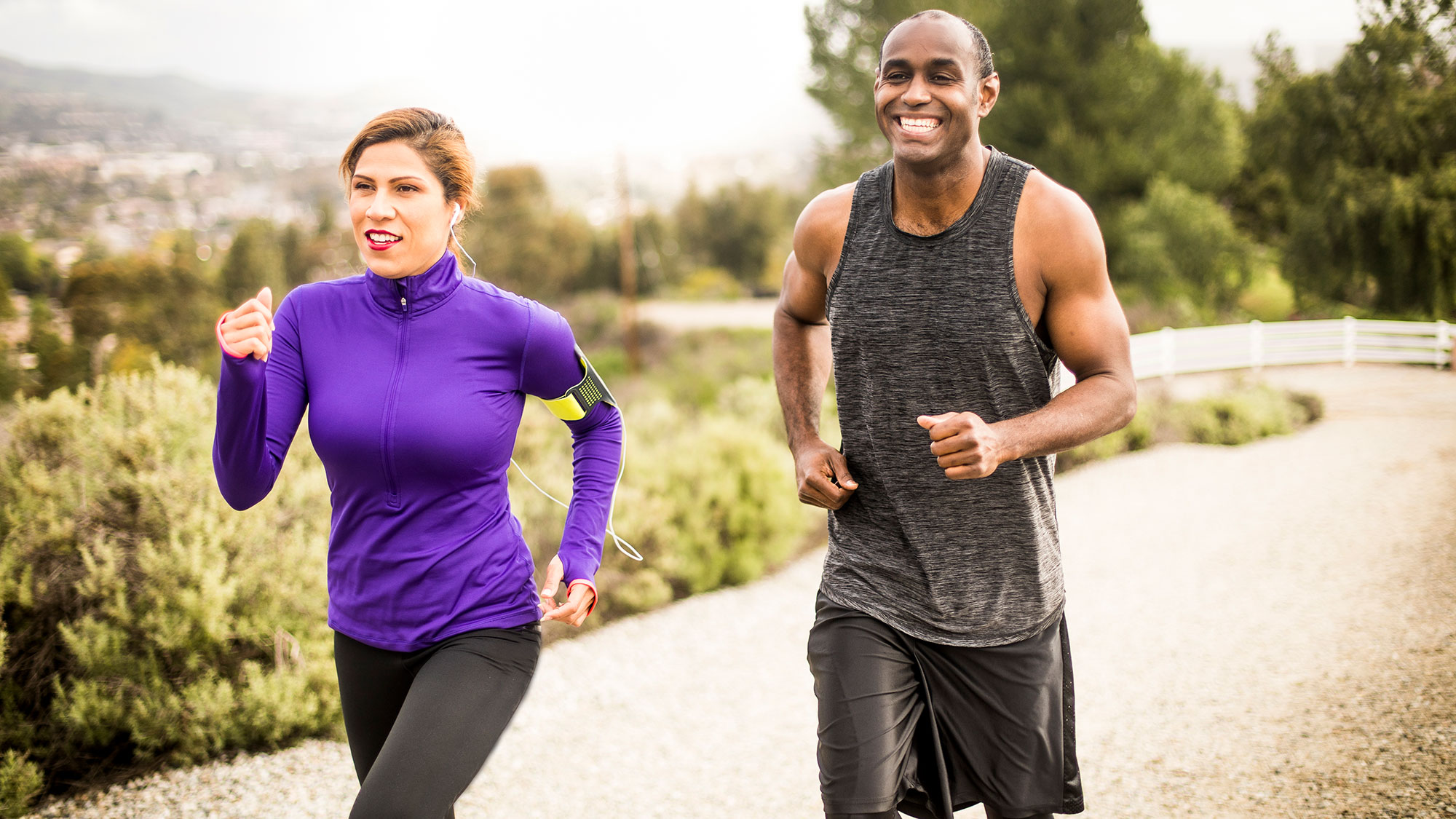
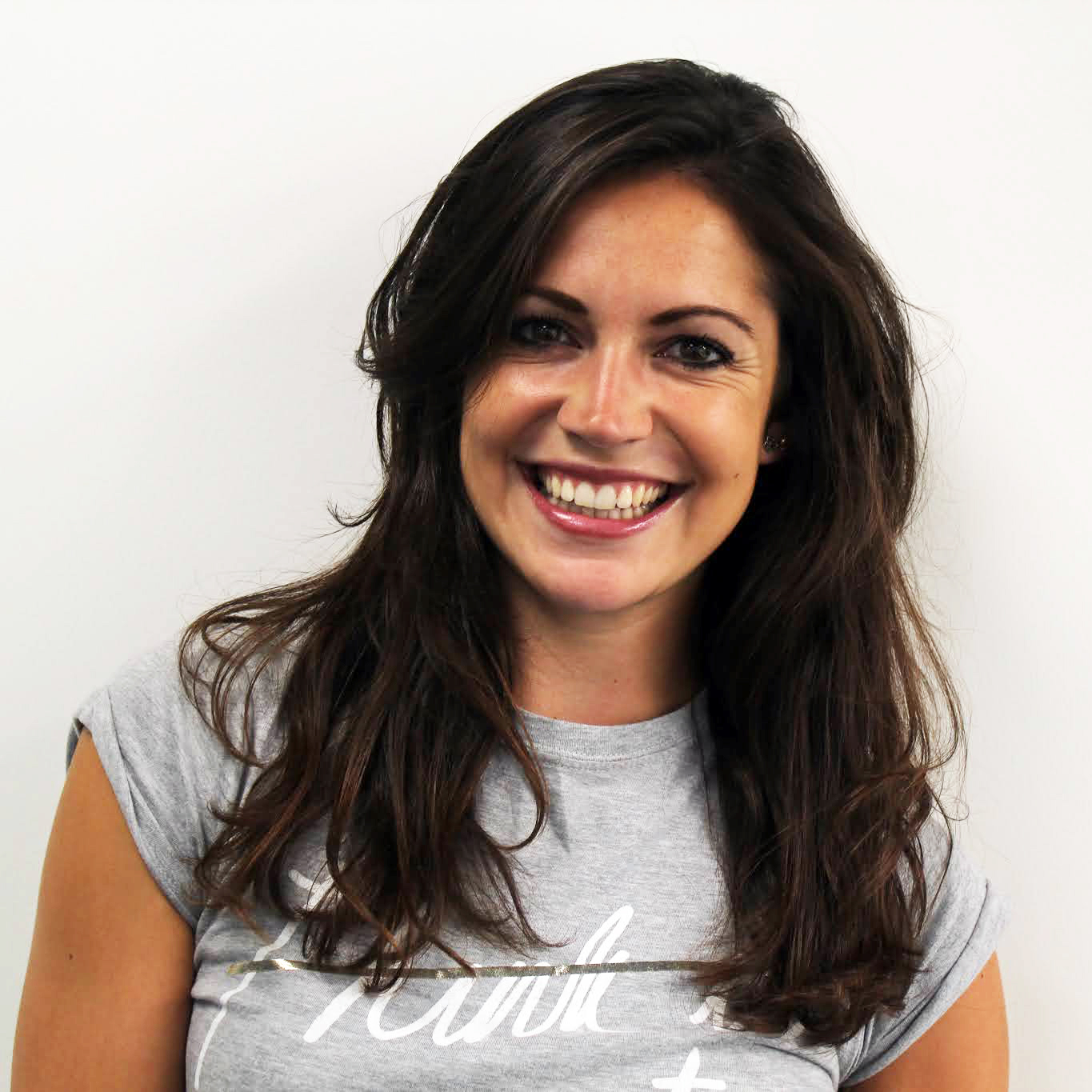
Finding out how to stay fit over 40 doesn’t have to be restrictive or demanding, it’s just down to building healthy habits in your daily life. Forget crash diets or over-exercising and instead try establishing some diet tweaks and certain types of exercise that have been recommended by experts in the field and designed to help you reach your goals.
Despite how balanced your diet is or how often you workout on some of the best exercise machines to lose weight it’s very natural for you to notice unwanted changes happening to your body as you start to age. Weight gain is to be expected as research finds age-related slowing of the metabolism does tend to become more pronounced after 40, slowing about 5% every decade. Additionally, you might notice a decline in strength or that it’s more difficult to maintain muscle mass. According to a study published by the National Library of Medicine, we lose 3-8% of muscle mass every decade after 30.
While that may sound all doom and gloom, staying fit and healthy during midlife can actually be enjoyable and even be a form of escape from your adult responsibilities. Regular exercise and fueling your body with healthy yet filling foods is a great recipe for boosting both your physical and mental health in your 40s and into later life.
The advice below will debunk how to stay fit over 40, taking tips from experts in the health and fitness industry.
Aim to do regular high intensity workouts
‘To stay fit in your 40s and beyond, you need to exercise regularly ideally two to three times a week,’ reveals Luke Gray, founder of online fitness studio feelnoo.com.
He adds that getting fitter, trimming fat and losing those inches off your waistline isn’t achieved from spending two hours straight in the gym in a one-off session.
‘There are a number of high intensity cardio exercises that you can do from the comfort of your own home that will get your heart rate up and into fat burning mode.’ This is where HIIT is your friend.
Get the Fit&Well Newsletter
Start your week with achievable workout ideas, health tips and wellbeing advice in your inbox.
HIIT stands for high intensity interval training. During HIIT workouts you can expect rapid, intense repetitions of a particular exercise for say, 30 seconds, followed by 30 seconds of rest, which you then repeat with different moves.
Research published in the British Journal of Sports Medicine gathered data from various different studies and found that those doing HIIT saw a 28.5% greater weight loss. So lace up your best workout shoes and HIIT the studio floor!
Of course, joint wear-and-tear is common as we age. For anyone concerned about joint issues, Gray advises looking for low-impact HIIT workouts.
'All of the classes at Feelnoo are tailored to provide low-impact, easy-on-the-joints movement. So, you won’t find squat jumps and high knees, however we will get you the cardio workout you need,' he says.
Eat more protein
Protein is essential for post-workout muscle recovery, a fact that becomes more important the older we get.
A review in the International Journal of Sport Nutrition and Exercise Metabolism reported that various studies have outlined how older athletes (those aged 40 and over) suffered impaired post-exercise recovery, and therefore needed more protein that their younger counterparts.
Some of the studies cited stated that, whilst younger athletes needed only 20g of protein for recovery, the needs of those in the older cohort were significantly higher: around 35 to 40g.
And it's not just recovery where protein is important. It also helps keep you feeling fuller for longer (thus reducing the temptation to reach for carbs and caffeine) and builds more muscle, which in turn increases your metabolic rate, boosting your energy levels and helping to fuel your exercise.
Good sources of protein include lean meats such as chicken and turkey, beans, lentils, legumes, fish and tofu. When preparing meats, be sure to opt for healthier cooking methods such as grilling or air-frying (we've picked the best healthy air fryers to help you do just that).
You could also try protein powders, whether added to post-workout smoothies or enjoyed as occasional meal substitutes. We've compiled lists of the best protein powders for weight loss and the best protein powders for women as a guide.
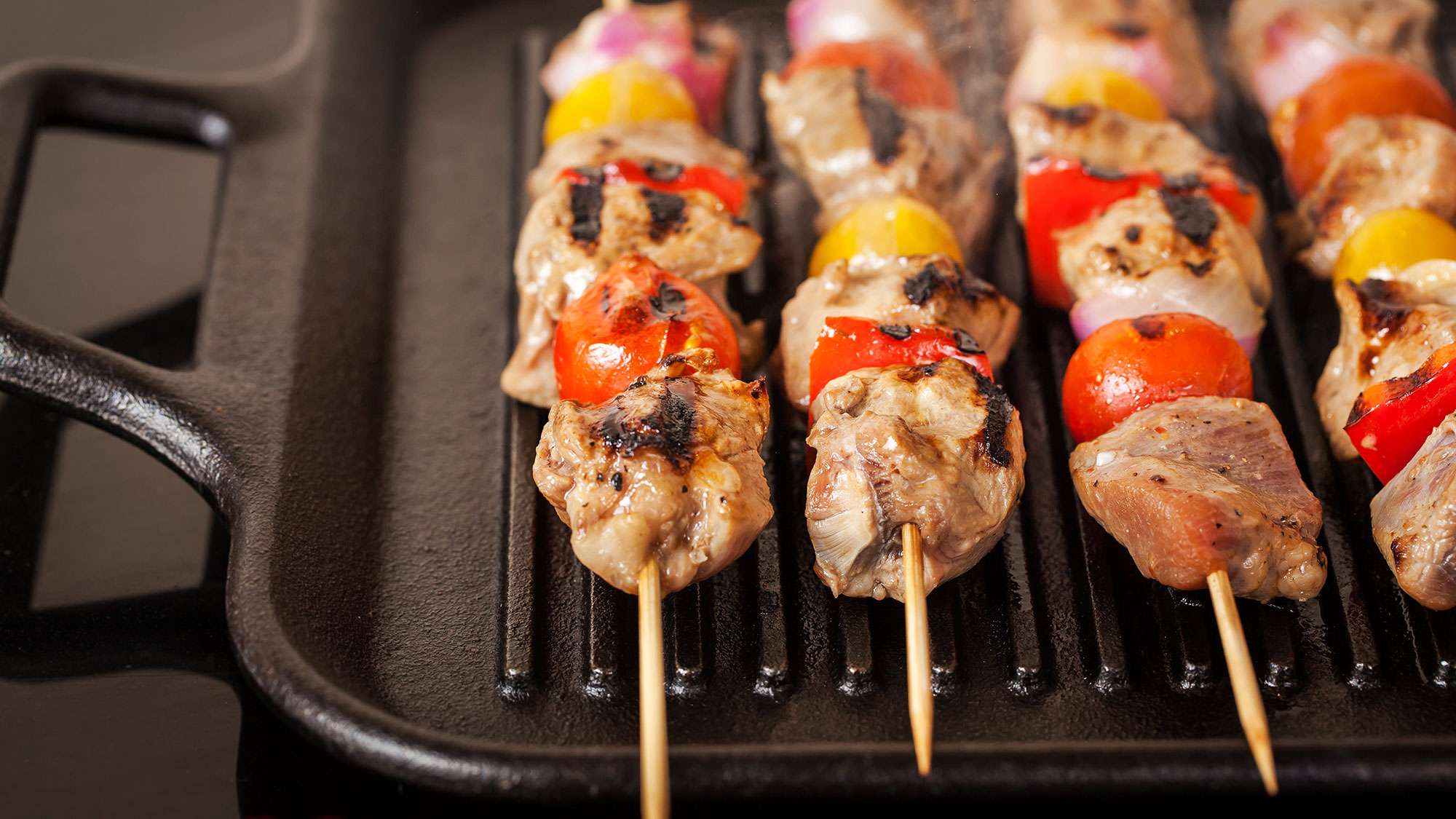
Workout to maintain muscle
In addition to cardio exercise such as HIIT and upping your protein intake, it's also important to factor strength training into your workout routine in order to build and preserve muscle.
As stated earlier, muscle mass decreases around 3-8% every decade after the age of 30. However, as Marc Bubbs -author of Peak 40 – The New Science of Mid-Life Health for a Leaner, Stronger Body and a Sharper Mind (out May 20) - advises: ‘If we can maintain muscle mass, all the chronic health conditions - cardiovascular disease, pre-diabetes, Alzheimer's - really plummet.'
He recommends working individual body parts with 10 sets of 8-15 repetitions per week, including your arms, core and legs. You could of course break these sets up into two lots of five across the week.
‘This is like two days of training - a half hour to 45 minutes; it’s totally doable and you can split this into upper body, lower body and across multiple days,' says Bubbs.
Some of the best arm exercises include arm circles, punches, tricep dips and bicep curls, the latter of which will require weights (check out our pick of the best adjustable dumbbells to workout at home).
Meanwhile, the best workouts for abs might include crunches (including variations such as bicycle crunches, ab circles and the mighty plank. You could also incorporate an ab roller into your routine.
And to workout the legs, you may want to try squats, lunges and calf raises. Learning how to deadlift - whether with dumbbells or barbells - can also be beneficial.
Stay hydrated
‘I absolutely drive my clients crazy about drinking water, especially when you hit your 40s as the body loses water as we age,’ says Gray.
‘It’s bad enough that not drinking enough water leads to poor performance in your muscles and can increase the risk of injury, but one of the main side effects of dehydration is tiredness and fatigue, so drink 1-2 liters per day.’
If you're on the move a lot, keep one of our best gym water bottle picks handy to sup as you go.
Ditch late night eating
‘Over 40% of all the calories we eat now are after 6pm and this isn't ideal,’ says Bubbs.
‘When we look at some research, people in the obese category eat the majority of their calories an hour before bed. The more you eat after 6pm, the greater the likelihood you will drink alcohol and eat ultra processed foods.’
His advice? 'You don’t have to do this every night, but start having nights of the week with no snacking after dinner. If we can cut late eating down, we can cut caloric intake and improve blood sugar levels.’
Marc adds that in addition to high blood sugar levels going hand-in-hand with weight gain, it also leads to pronounced menopausal symptoms in women. These include sleep and mood disturbances, and changes in libido.
‘Improving glucose control is a big piece of the puzzle,' he says of menopause, adding that for women carrying excess weight: 'Simply losing weight is a good way to improve glucose control.’
Focus on sleep
Exercise is a great place to start to improve sleep and vice versa.
Studies have in fact found a direct correlation between regular exercise and sleep quality as Gray explains.
'It is scientifically proven that if you make exercise part of your regular routine it will improve your quality of sleep. In turn, sleep gives your body time to recover, conserve energy and repair and build up the muscles worked during exercise.'
The takeaway? 'The better rested you are, the better your mind and body can function – and that includes at the gym.'
Gray recommends choosing an activity that you like, be it walking, running, a certain exercise class or otherwise. Not only will this improve fitness if done regularly, but doing something enjoyable will also help release stress and give you a sense of wellbeing.
Struggle to sleep due to comfort issues? Take a look at our pick of the best mattresses toppers to enhance your overnight environment.

Aim for consistency
Midlife is typically a busy time, and there will be roadblocks that get in the way of your exercise routine.
With this in mind, Bubbs explains the need to establish healthy routines that are feasible in the long-term, but also offer 'good bang for our buck' when time is limited.
‘Consistency is the best predictor of success,' he explains. 'e want a long term plan and we need to be patient with it.’
He suggests 'exercise snacking', scheduling regular short workouts (such as 15 minute slots), so that when life is hectic it's still possible to fit in some exercise - with little room for excuses.
Reduce intake of refined carbohydrates
Regular consumption of refined carbs such as cakes, biscuits and 'white' grains (think white rice and pasta) can cause you to enter into a vicious cycle of elevated sugar levels, blood sugar-lows and tiredness.
'This is going to have a negative effect on your motivation to work out and get fit,' says Gray. It can also result in you feeling less sated and hungry more often.
Instead opt for wholegrain varieties such as brown rice, oats, fruits, vegetables and wholegrain pasta.
Lucy is a freelance journalist specializing in health, fitness and lifestyle. She was previously the Health and Fitness Editor across various women's magazines, including Woman&Home, Woman and Woman’s Own as well as Editor of Feel Good You. She has also previously written for titles including Now, Look, Cosmopolitan, GQ, Red and The Sun.
She lives and breathes all things fitness; working out every morning with a mix of running, weights, boxing and long walks. Lucy is a Level 3 personal trainer and teaches classes at various London studios. Plus, she's pre- and post-natal trained and helps new mums get back into fitness after the birth of their baby. Lucy claims that good sleep, plenty of food and a healthy gut (seriously, it's an obsession) are the key to maintaining energy and exercising efficiently. Saying this, she's partial to many classes of champagne and tequila on the rocks whilst out with her friends.
-
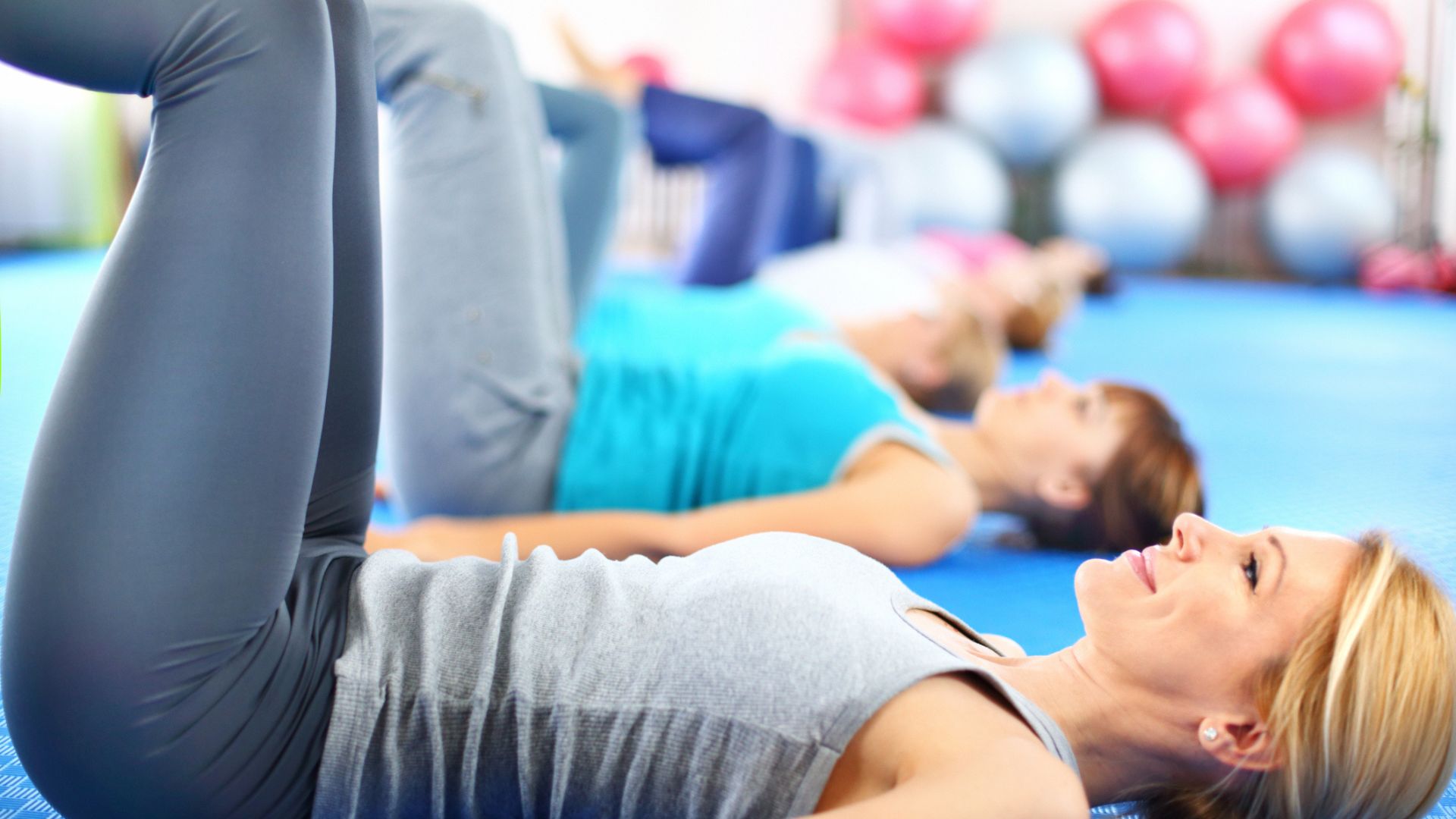 A Pilates instructor says this is the beginner-friendly core exercise everyone should try
A Pilates instructor says this is the beginner-friendly core exercise everyone should tryForget crunches, this is the perfect foundation move
By Alice Porter Published
-
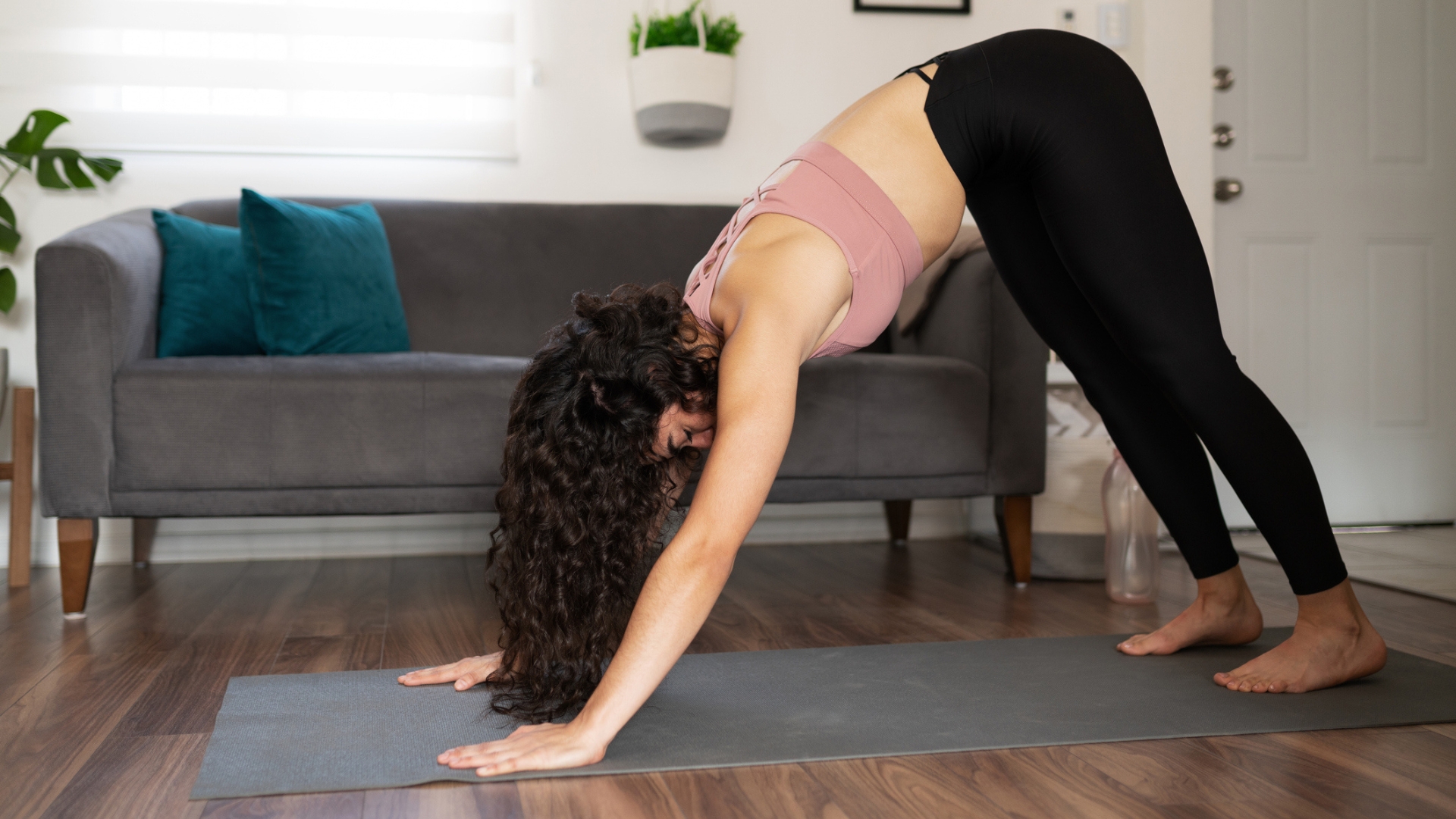 Prevent poor posture and release tension from sitting down with these four simple stretches from a yoga instructor
Prevent poor posture and release tension from sitting down with these four simple stretches from a yoga instructorThe daily poses he swears by, no matter what
By Alice Porter Published